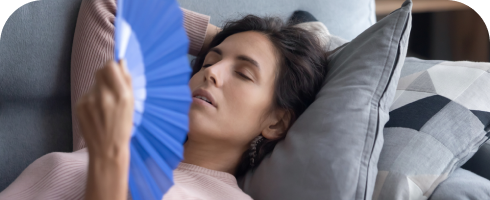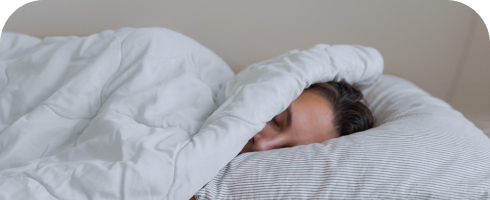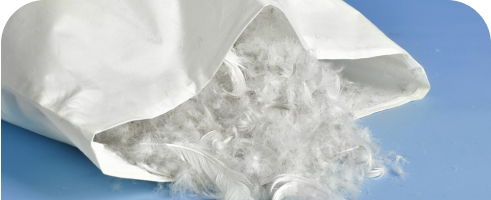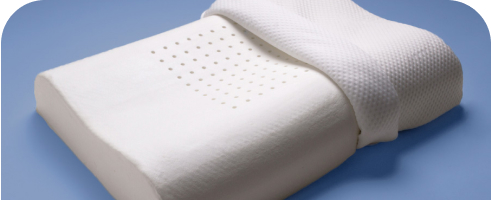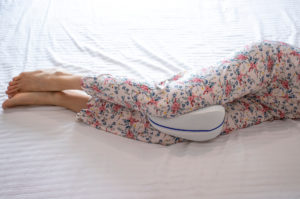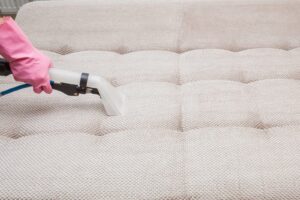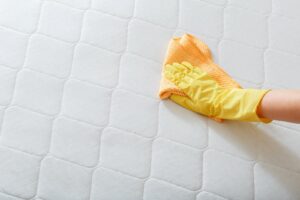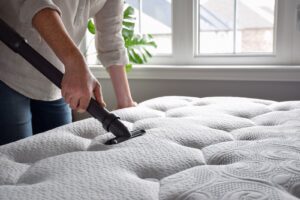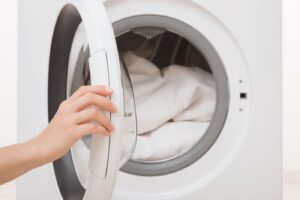Best Places to Buy Pillows
Key Takeaways
The best place to buy a pillow depends on your individual needs and preferences. Shopping online provides a variety of choices, while purchasing directly from a pillow manufacturer often includes a generous sleep trial and return policy. For shoppers who prefer to test a pillow before purchasing, shopping in-store might be a better option.
Shoppers who need to replace their pillow have several options. Buying online provides a wide variety of pillow choices that fit different budgets and sleep needs, while purchasing directly from a manufacturer can give shoppers access to sales and excellent return policies.
For those who prefer shopping in a brick-and-mortar store, salespeople can help direct shoppers to the best pillow for their needs and answer any questions they might have. In-store shopping also allows you to feel and test a pillow before committing to a purchase.We’ll cover the advantages and disadvantages of different shopping options. We’ll also highlight important factors to consider when buying the best pillow for your needs as well as standard fill materials and sizes.
Find a Pillow That’s Right for You
Looking for a new pillow? Take the quiz below to find the perfect pillow for your needs.
Trouble sleeping?
Answer these 5 easy questions to discover your perfect pillow

Trouble sleeping?
Answer these 5 easy questions to discover your perfect pillow
What position do you sleep in?

Side

Back

Stomach
Buying Pillows Online
Buying a mattress or pillow online provides shoppers with a wide array of options. Most manufacturers include detailed descriptions of each pillow’s materials and construction, which allows shoppers to easily find a suitable pillow for their needs. You can purchase directly from a manufacturer or from a third-party retailer such as Amazon. Each of these options has pros and cons.
Direct From Pillow Manufacturers
Many mattress and pillow manufacturers have online stores. Purchasing directly from the manufacturer can be a great way to get a good deal on a pillow. When buying directly from the manufacturer, shoppers typically get a good return policy and sleep trial with their pillow purchase.
| Pros | Cons |
|---|---|
|
|
Third-Party Retailers and Marketplaces
Third-party retailers and marketplaces such as Amazon carry numerous pillow designs from a wide range of manufacturers. This can be useful for easily comparing pillow brands and reading reviews. Many shoppers also appreciate being able to purchase from a familiar and trustworthy website.
| Pros | Cons |
|---|---|
|
|
Buying Pillows In Store
Many shoppers prefer trying out a pillow before committing to a purchase. Some stores have sales associates who can provide product-specific knowledge and direct you to pillows that can best support you while you sleep.
Home Furnishing Stores: Home furnishing stores like Crate & Barrel, Pottery Barn, and HomeGoods sell pillows. Sales associates can help answer questions about products and direct you to a suitable pillow for your specific needs. However, prices can be higher compared to third-party retailers and pillow manufacturers.
Department Stores: Department stores such as Macy’s and Nordstrom carry bedding items but may have fewer choices. Additionally, pillows tend to have higher price-points unless there is a sale.
Warehouse Clubs: While in-store sales staff are unlikely to have extensive pillow product knowledge in stores like Costco or Sam’s Club, the products often feature decent quality materials and reasonable price-points.
Where You Should Buy Pillows
If you prefer to test a pillow before purchasing and have access to salespeople, shopping in a store may be the best option for you. For shoppers who want to browse a range of options and compare pillows, shopping online may be better. Purchasing directly from a manufacturer offers shoppers detailed product information as well as live customer support. We’ll cover the advantages of each option below.
| Direct from Pillow Manufacturers | Third-Party Retailers and Marketplaces | In-Store |
|---|---|---|
|
|
|
Important Factors for Choosing Pillows
There are many factors to consider when pillow shopping, and each shopper has their own unique needs and preferences. For example, sleepers looking to reduce neck and shoulder pain might want to consider manufacturers that specialize in pillows specifically designed to reduce aches and pains. Other factors to consider include your budget, preferred sleep position, firmness level, and temperature control.
Cost: Pillows come in a wide range of price-points. While many costlier pillows are made of higher quality materials, a good pillow can still be found at a reasonable price.
Sleeping Positions: Pillows help keep your head and neck in a comfortable position while you sleep. Side sleepers benefit from a higher loft pillow as well as moderate contouring and support, while back sleepers require a pillow with a medium loft and firmness level. Stomach sleepers need a low-loft pillow with a soft to medium firmness level.
Temperature Control: For those who sleep hot, pillows with cooling materials such as latex, down alternatives, and wool help regulate temperature.
Firmness: A pillow’s firmness level determines how much it contours to a sleeper. Firmer pillows compress less under the sleeper’s weight, while softer pillows compress more.
Pillow Fill, Explained
A pillow is essentially an outer cover encapsulating an inner fill. The fill material determines how a pillow compresses and regulates heat. Common fill types include memory foam, down, down alternative, latex, and cotton.
Memory foam slowly compresses and contours to the sleeper’s shape while providing excellent support. While solid memory foam pillows tend to trap heat, shredded and gel-infused pillows are designed to help promote cooling.
Down is a natural product made from the inner feathers of ducks and geese. Down pillows offer a plush surface but may lack sufficient firmness for sleepers who need more support.
Down alternative comes from polyester microfiber and mimics the soft plushness of down. Down alternative pillows may be a good choice for sleepers who have allergies to down.
Latex is a natural and organic material derived from the sap of rubber trees. Latex pillows offer moderate contouring, good pressure relief, and temperature regulation.
Cotton and wool are natural, breathable materials. While both materials regulate temperature, wool may be less conforming than other fill types.
Pillow Sizes
Pillows are commonly rectangular and come in many sizes. Apart from European pillows, all pillow sizes measure 20 inches wide. Pillows vary from 26 inches to 36 inches in length, while the loft depends on the pillow’s construction. Some pillows, such as maternity pillows, feature unique shapes to optimize comfort for specific needs.
| Pillow Size | Dimensions (Width x Length) |
|---|---|
| Standard | 20″ x 26″ |
| Super Standard | 20″ x 28″ |
| Queen | 20″ x 30″ |
| King | 20″ x 36″ |
| European | 26″ x 26″ |

Still have questions? Ask our community!
Join our Sleep Care Community — a trusted hub of sleep health professionals, product specialists, and people just like you. Whether you need expert sleep advice for your insomnia or you’re searching for the perfect mattress, we’ve got you covered. Get personalized guidance from the experts who know sleep best.

